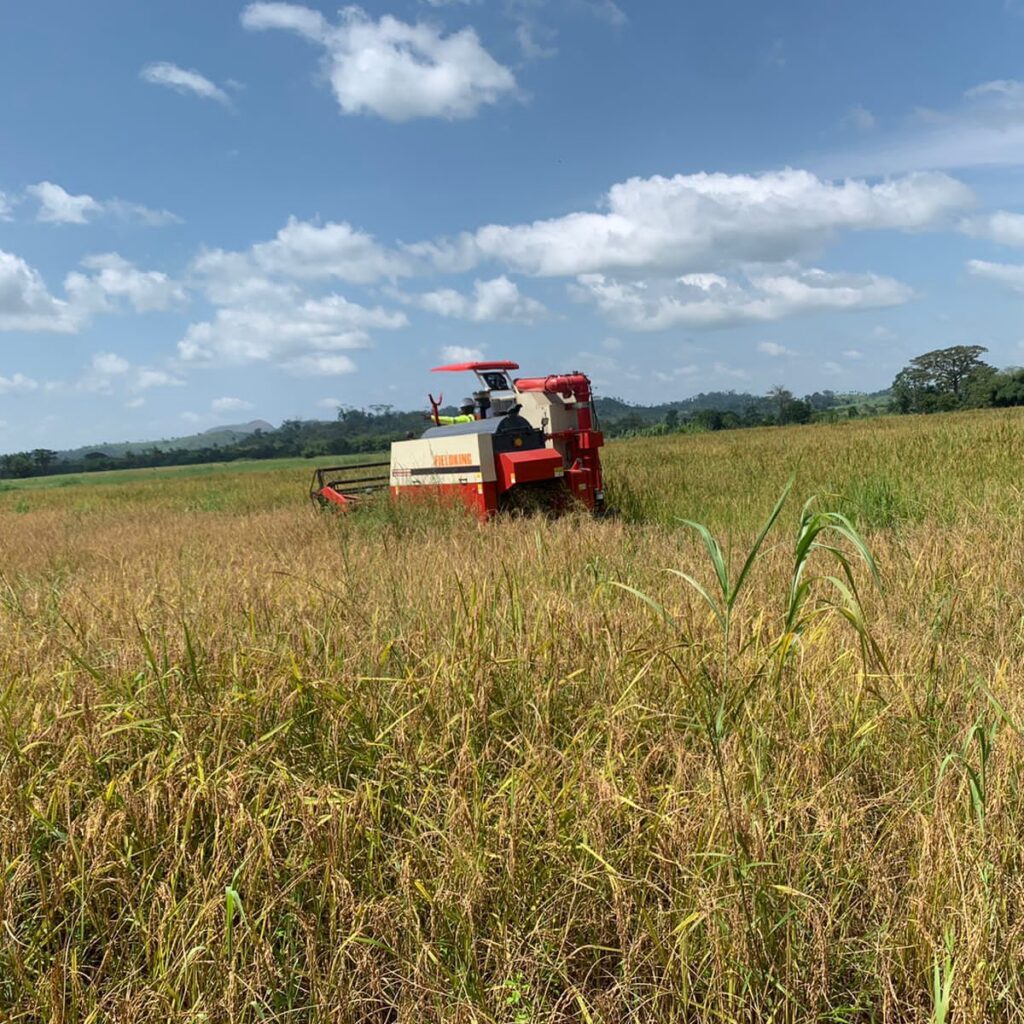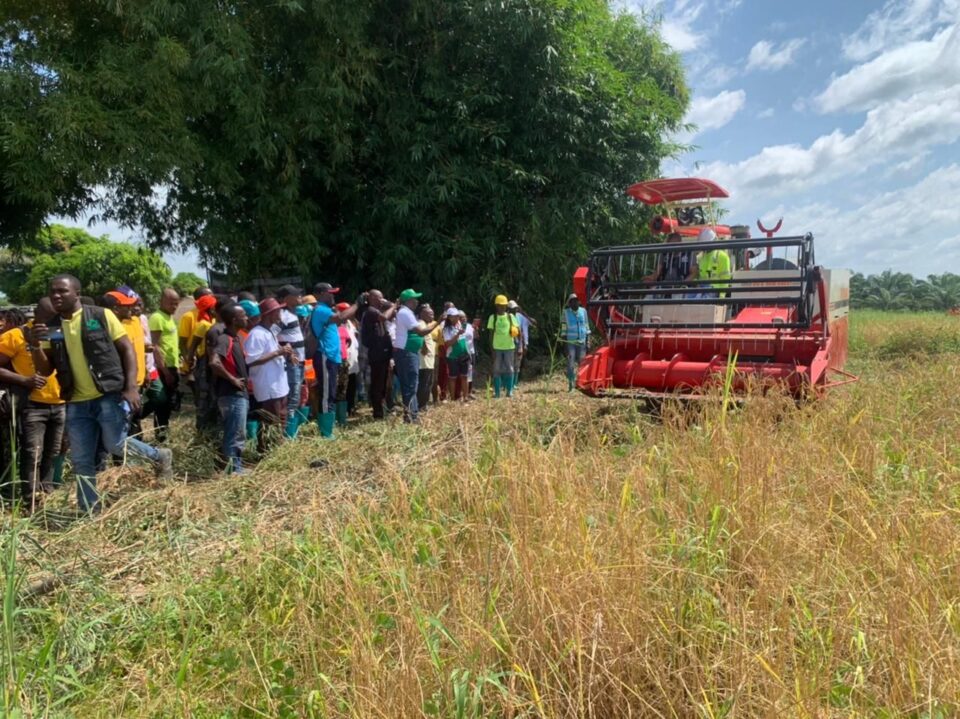The Makona River Farm and Agriculture Services is expected to harvest 10,000 hectares of rice using a new technology called a double harvester.
The double harvester is a piece of equipment that has considerably increased rice production while lowering labor costs.
Saah Bundoo, the farm manager, who spoke during the launch of the Makona River Farm and Agriculture Services 2023 kickoff of harvest, called on Liberians to work together to kick hunger out of Liberia and the importation of the nation’s staple food. He said they are poised to harvest over 30 metric tons of rice this year for the first time.
Bundoo further said that the new innovative technology has brought numerous benefits to the country’s staple food production in Northern Liberia, including increased productivity, reduced labor costs, and improved efficiency.
Traditionally, the process of harvesting rice was time-consuming and labor-intensive, requiring extensive manual labor by farmers but the new technology has brought relief to the Makona River Farm and Agriculture Services.
Bundoo believed that in the next five years, if they can get support from the government and partners, they would explode bushes and ensure that mechanized farming be reintroduced in Liberia to end the importation of the country’s staple food.

Bundoo said though the government and partners continued to invest in the agriculture sector over the years, the recent investment into mills in Voinjama and Foya districts, as well as financial support to farmers to enable them to invest in modern farming technologies, have changed the narratives in the sector.
“Never doubt Makona River Farm and Agriculture Services production ability because we have been in the farming activities for years and we have decided to bring Lofa County back to its original space in agriculture activities, especially rice production,” the farm manager added.
According to her, the new initiative by the government and partners continued to contribute to the formation of different farming groups and cooperatives, thereby leading to huge quantities of rice and other agricultural produce.
Bundoo said based on the support from the World Bank, Star-P, and other projects of the Ministry of Agriculture to support farmers, there has been increased production of rice this year, and it shows that farmers are resolved to take the lead in rice production and other agricultural products.
He, however, called on the government and partners to invest in a processing center and farming equipment that will put them in competition with the imported rice and they can produce to give the Liberian people the best quality rice.
Bundoo said the irrigation of the current 10,000 hectares of farmland, which will cost three million United States dollars, is necessary to enable them to produce two to three times a year because some of the rice takes just 75 days, which is less than three months, stating, “We have Abu rice, Narika four rice, and Narika 19 rice.”
The Chief Agronomist on the STAR-P of the project management unit at the Ministry of Agriculture (MOA), Theophilus Boah, calls on farmers to continue to work together to increase rice production and make Lofa County the “bread basket” of Liberia again.
“This STAR-P project is funded by the World Bank and IFAD, and we informed you how the project is supporting farming groups. We want to say thank you very much for the work you have done. We hope that we can continue the relationship that we started to keep going forward,” Boah said.
This project is supporting many farmers with equipment and cash, especially cooperatives and groups to enable them to increase rice production.
The Paramount Chief of Sorlumba, Fallah Quoi Bundoo, expressed gratitude to the World Bank for its thoughtfulness in bringing help to eradicate hunger in Liberia and called on them to always provide means to support farmers for increased rice production.
“We are able to do more work than this to fight hunger in Liberia, and we also want you to continue to do more. We have found out that we have somebody behind us, and we are glad about everything coming from you to our people,” Bundoo, who is over 100 years old, said.
The manager of the Foya Rural Community Institute, a financial entity established to assist farmers, Joseph B. Korsor, said the institute has begun to see the impact of its investment in the agriculture sector, while lauding the World Bank and the Ministry of Agriculture for their support of farmers.
Korsor said local farmers continued to be faced with the issue of the market for their produce, which most times made it difficult to receive loans because of the level of damaged rice, thereby leading to losses, stating “our bank gets strangled and unable to pay the savings of customers, especially during the festive season.”
The Royal Community Institute’s Manager said his entity is prepared to invest at least $50 million in an effort to increase farming activities.
Meanwhile, the Makona River Farm and Agriculture Services, established in 2016, located in Sorlumba Foya District, Lofa County, covered 10,000 hectares of both lowland and upland and poised to harvest over 30 metric tons of rice this year for the first time.

